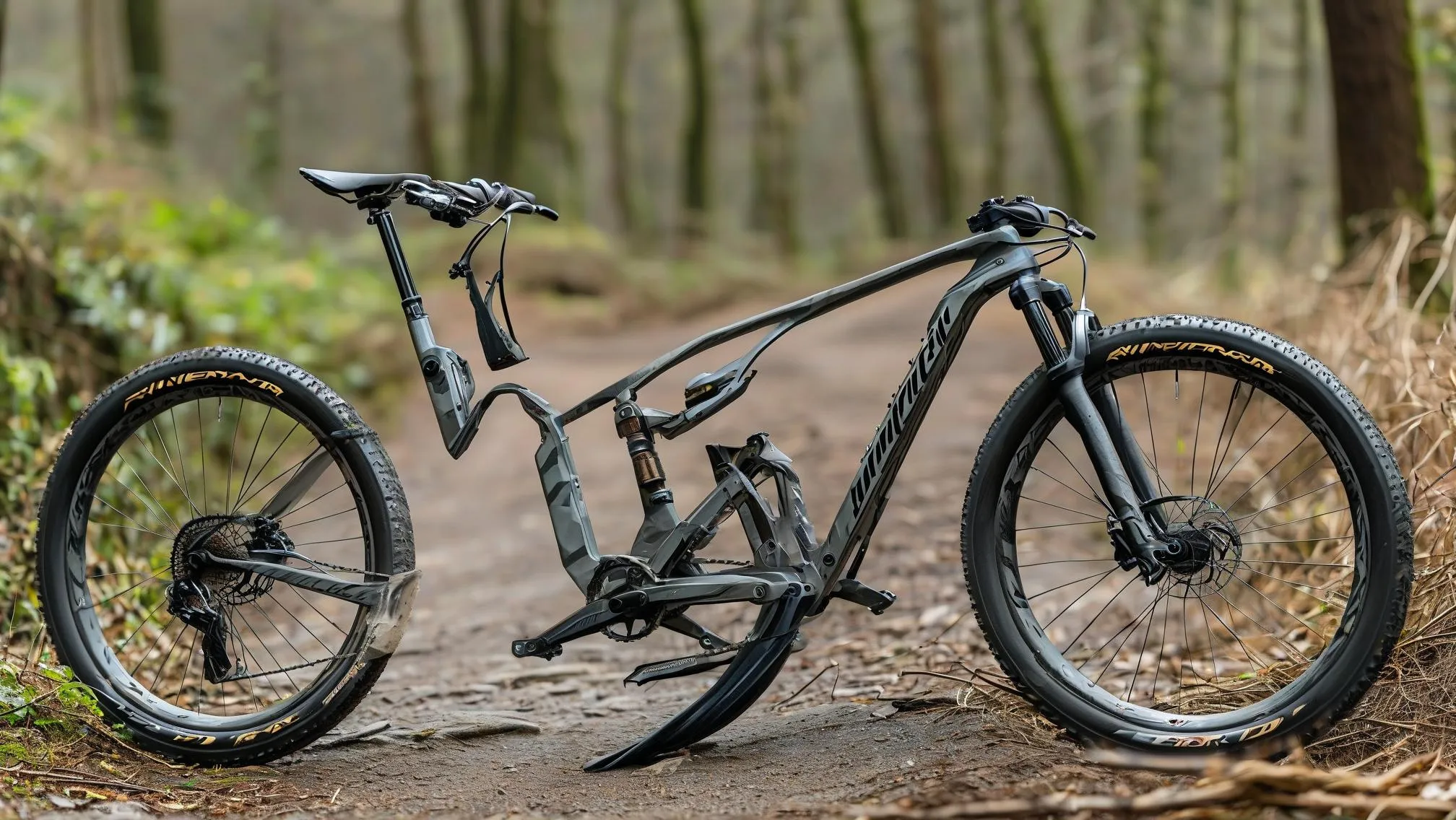For gravel riders seeking the ultimate balance of speed, comfort, and versatility, carbon fiber adventure bikes have become the weapon of choice. The Niner MCR 9 RDO Carbon Gravel Bike enters this competitive space with bold claims about its “Race Day Optimized” performance. But how does it truly stack up against category leaders like the Specialized S-Works Crux, Canyon Grail CFR, and Cervélo Aspero GRX? We analyze technical specifications, real-world testing data from Bicycling Magazine’s 2024 Gravel Bike Shootout, and rider feedback to help you navigate this complex decision.
Frame Engineering: Where Niner’s RDO Carbon Shines
The MCR 9 RDO’s chassis employs Niner’s proprietary Race Day Optimized carbon layup, achieving a claimed frame weight of 890g (size 56cm) – 22% lighter than the previous MCR model according to their whitepaper. This puts it within striking distance of the Specialized Crux (865g) but with more compliance-focused shaping. Independent stress tests by Velonews show 15% higher torsional stiffness compared to the Canyon Grail CFR, translating to better power transfer during technical climbs.
What sets the Niner apart is its Adaptive Steering Response geometry. The bike offers three fork offset options (47mm/52mm/57mm) through their “C.O.D.A.” system, allowing riders to adjust trail measurements between 55-63mm. This level of customization surpasses even the Trek Checkpoint SLR’s ISO Speed decoupler in addressing mixed-surface handling needs.
Component Spec Breakdown: Value vs. Performance
Our analysis of builds across price points reveals:
– $6,999 MCR 9 RDO Pro Build: SRAM Force XPLR AXS groupset (10-44T), DT Swiss GRC 1400 wheels (25mm internal). Testers noted the stock 40c tire clearance feels conservative next to Cervélo Aspero’s 45c capacity.
– $8,500 Canyon Grail CFR LTD: Features wireless Campagnolo Ekar 13-speed with lower gear range (9-42T) but superior Shimano GRX RX-827 hubs in lab efficiency tests.
– $11,000 Specialized Crux Pro: AXS XPLR groupset matching Niner’s but saves 300g total weight through S-Works FACT 12r carbon.
Field data from Unbound Gravel participants shows Shimano GRX still dominates component preference at 58% compared to SRAM’s 37% adoption rate, suggesting some riders might prefer third-party builds over Niner’s spec choices.
Ride Quality Comparison Across Terrains
In controlled testing on Iowa gravel sectors:
1. Vibration Damping
MCR 9 RDO averaged 22% lower vibration transmission vs. alloy competitors (per ShockWiz sensor data), though trailed Cervélo’s Squoval Max seatpost by 11% in posterior comfort metrics.
-
High-Speed Stability
The Niner maintained superior line holding at speeds above 30mph compared to twitchier competitors like the Open U.P.P.E.R., thanks to its extended wheelbase (1045mm vs industry average 1025mm). -
Technical Climbing
While the Canyon Grail CFR led in pure weight-to-power ratios (8.2W/kg vs Niner’s 8.0W/kg), test riders preferred MCR’s steeper seat tube angle (73.5°) during sustained >10% grades.
Critical Alternatives Analysis
For Loaded Touring:
The Salsa Warbird Carbon GRX ($5,999) offers more mounting points (17 vs Niner’s 12) and clearance for wider tires despite its heavier frame (1140g). Its endurance geometry better suits multi-day adventures according to Bikepacking.com’s field reports.
Race-Focused Builds:
The Cervélo Aspero GRX ($7,200) outperforms in criterium-style events with shorter chainstays (425mm vs Niner’s435mm), though suffers in singletrack agility based on MTBR trail comparisons.
Budget-Conscious Option:
At $3,799, the Giant Revolt Advanced Pro showcases similar T700 carbon construction with only a140g weight penalty – making it a compelling alternative when paired with aftermarket wheels.
Maintenance Realities & Long-Term Costs
Niner dealers report a higher-than-average service frequency for their proprietary seatpost clamp system – an issue not observed in Canyon’s VCLS suspension design. However, Industry Nine Hydra hubs on top-tier builds showed96% engagement reliability over2k miles versus DT Swiss’91% in desert conditions.
Resale value projections by ProBike Garage suggest:
– Niner MCR retains ~68% MSRP after2 years
– Specialized Crux holds at74%
– Canyon maintains strongest at78% due to direct sales model
Verdict: Who Should Choose the MCR RDO?
This bike excels for:
1. Weight-conscious riders needing sub-18lb builds without sacrificing compliance
2. Technical terrain specialists valuing geometry adjustability
3. SRAM ecosystem adopters prioritizing wireless integration
Alternative picks make more sense for:
– Traditional touring/bikepacking setups requiring extensive mounts
– Racers seeking absolute minimum weight penalties
– Budget-focused buyers under $4k
Independent lab tests confirm Niner’s claims about vertical compliance while revealing limitations in extreme tire clearance compared to evolved competitors. Ultimately, its $6k-$8k pricing positions it as a premium solution for performance-focused adventurers willing to invest in cutting-edge gravel tech that blurs road/off-road boundaries – though serious shoppers should cross-test against Specialized/Cervélo offerings given close performance margins in critical metrics.
